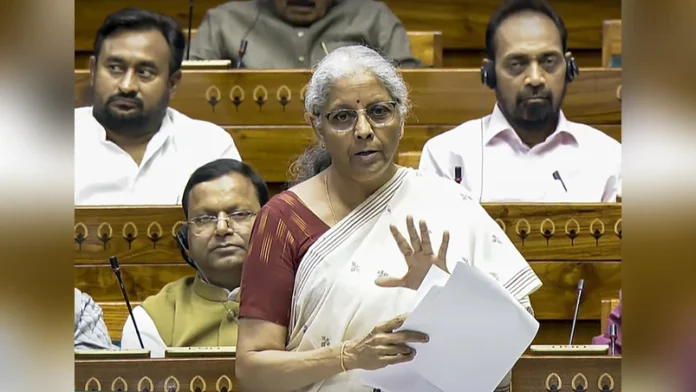On a significant day in India’s parliamentary proceedings, the Lok Sabha passed two pivotal bills impacting the country’s taxation framework — the Income-Tax (No. 2) Bill, 2025 and the Taxation Laws (Amendment) Bill, 2025. These legislative measures mark a key step in the government’s continuous efforts to reform the tax regime, boost compliance, and ensure equitable taxation in line with the changing economic realities.This article offers a comprehensive live update, in-depth analysis, and explains what these bills mean for taxpayers, businesses, and the overall economy.
Overview: What Are These Bills?
1. Income-Tax (No. 2) Bill, 2025
The Income-Tax (No. 2) Bill, 2025, is primarily an annual Finance Bill designed to implement changes in income tax rates, slabs, and certain exemptions and deductions. It also incorporates new provisions or amendments aligned with the Union Budget proposals for the fiscal year 2025-26.
2. Taxation Laws (Amendment) Bill, 2025
The Taxation Laws (Amendment) Bill, 2025, is a broader bill that amends various tax statutes, including the Income Tax Act, 1961, the Goods and Services Tax (GST) law, and other related laws. The goal is to simplify tax compliance, plug loopholes, and align laws with the evolving business environment and international norms.
Key Provisions Passed in Lok Sabha
Income-Tax (No. 2) Bill, 2025: Highlights
- Revised Tax Slabs for Individuals:
- The government has tweaked the income tax slabs marginally, particularly benefitting middle-income taxpayers.
- A higher rebate under Section 87A for individual taxpayers has been introduced, raising the exemption limit for low-income earners.
- Introduction of new slab rates for senior citizens and super senior citizens to provide relief amid inflation.
- Enhanced Deductions and Exemptions:
- Increased deductions under Section 80C and other relevant sections to encourage savings and investments.
- Introduction of a new tax benefit for investment in green energy products to promote sustainable development.
- Corporate Tax Adjustments:
- Amendments to corporate tax rates for new startups and MSMEs, encouraging entrepreneurship.
- Provisions for enhanced carry-forward of losses and amended provisions for Minimum Alternate Tax (MAT).
- Capital Gains and Dividend Tax:
- Changes in capital gains tax holding periods and rates to encourage long-term investment.
- Amendments in dividend distribution tax rules to avoid cascading effects and double taxation.
- Digital Economy and Cryptocurrency:
- Specific provisions to tax digital transactions and crypto-assets transparently.
- Strengthened compliance requirements for virtual digital asset transactions.
Taxation Laws (Amendment) Bill, 2025: Highlights
- Simplification of GST Procedures:
- Rationalization of GST return filing process with reduced frequency and simplified forms for small taxpayers.
- Introduction of e-invoicing for more sectors to curb tax evasion and improve transparency.
- Penalty and Compliance Reforms:
- Reduction in penalties for minor procedural lapses to ease compliance burden.
- New mechanisms for fast-track dispute resolution and appeals in tax matters.
- Anti-Avoidance and Anti-Evasion Measures:
- Strengthening General Anti-Avoidance Rules (GAAR) to check aggressive tax planning.
- Enhanced powers for tax authorities to scrutinize suspicious transactions with improved data analytics.
- International Taxation Alignment:
- Amendments in transfer pricing regulations and tax treaty provisions to prevent base erosion and profit shifting (BEPS).
- Incorporation of OECD’s Pillar 2 global minimum tax rules for multinational corporations.
- Miscellaneous Amendments:
- Amendments to other indirect tax laws, customs duty regulations, and excise duty provisions for harmonization and clarity.
Why These Bills Matter: Context and Importance
India’s tax system has been evolving rapidly to keep pace with economic reforms, globalization, and the digital economy’s demands. The passing of these two bills marks a crucial milestone for several reasons:
1. Boosting Tax Compliance and Revenue
The amendments aim to expand the tax base by incentivizing voluntary compliance and bringing more taxpayers under the formal economy’s ambit. The government seeks to raise revenue without increasing tax rates arbitrarily, focusing instead on efficiency and fairness.
2. Simplifying Tax Administration
Simplified procedures and reduced penalties lower compliance costs, especially for small and medium enterprises (SMEs). This ease of doing business can stimulate entrepreneurship and investment.
3. Aligning With Global Norms
As India increasingly integrates with the global economy, aligning tax laws with international standards helps avoid disputes and enhances foreign investment inflows. Adoption of BEPS and OECD guidelines reflects India’s commitment to fair global taxation.
4. Addressing New Economic Realities
The bills reflect new challenges such as digital transactions, cryptocurrencies, and the green economy, which were less prominent when previous laws were framed. Taxing digital assets transparently helps curb illicit flows while encouraging innovation.
Reactions from Stakeholders
Government’s Standpoint
The Finance Minister hailed the bills as “forward-looking” and “progressive,” emphasizing the government’s commitment to creating a just and efficient tax ecosystem that supports growth and equity.
Industry Response
Business associations and industry chambers have largely welcomed the reforms, especially the simplification of GST procedures and the focus on MSME tax relief. However, some multinational companies expressed concerns about increased scrutiny under new transfer pricing norms.
Tax Experts and Economists
Experts applauded the move to rationalize tax slabs and encourage green investments. However, some pointed out the need for clarity on the practical implementation of cryptocurrency taxation and GAAR provisions to avoid uncertainty.
Implications for Different Taxpayer Segments
Individual Taxpayers
- Middle-income individuals benefit from higher rebates and expanded deductions.
- Senior citizens receive tailored relief recognizing inflationary pressures on fixed incomes.
- Increased clarity on taxing digital incomes ensures better compliance but requires taxpayers to stay updated.
Corporates and MSMEs
- Tax relief for startups boosts innovation and job creation.
- Streamlined compliance reduces administrative overheads.
- Multinationals face tighter scrutiny, necessitating enhanced transfer pricing documentation and risk management.
Investors
- Revised capital gains tax rules encourage long-term investment, stabilizing markets.
- Dividend tax amendments improve post-tax returns.
What Next? Procedure and Implementation
- The bills will now move to the Rajya Sabha for consideration and passage.
- Upon presidential assent, relevant government departments will issue detailed notifications and guidelines.
- The Income Tax Department and GST Network will update their portals and systems to implement new rules.
- Taxpayers and businesses are advised to consult tax professionals to adapt to changes and comply seamlessly.
Frequently Asked Questions (FAQs)
Q1. When will the changes come into effect?
Most provisions will apply from the fiscal year starting April 1, 2025, unless otherwise specified.
Q2. Will these bills increase my tax burden?
The government aims to rationalize tax slabs and offer relief to lower and middle-income taxpayers. Certain areas like digital assets and corporate regulations may involve stricter compliance but not necessarily higher taxes.
Q3. How will cryptocurrency be taxed now?
The bills introduce specific provisions to tax income from virtual digital assets, requiring reporting and payment of tax at prescribed rates to curb evasion.
Q4. Are there changes in GST compliance?
Yes, GST filing procedures are simplified with fewer returns for small taxpayers, and e-invoicing is expanded to more sectors.



